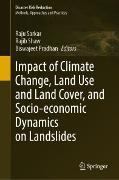Prof. Raju Sarkar is a professor in the Department of Civil Engineering, Delhi Technological University (DTU). Prior to rejoining his parent organization, DTU, Prof. Sarkar was working as a professor in the Department of Civil Engineering and Architecture, College of Science and Technology, Royal University of Bhutan, Bhutan, under the Ministry of External Affairs, Government of India Deputation to Bhutan. During his tenure in Bhutan, he established the Research Centre for Disaster Risk Reduction and Community Development Studies and worked as founding coordinator and head of the research centre. Prof. Sarkar also worked as a team leader to start the new undergraduate programme in engineering geology in the Royal University of Bhutan. He has more than 23 years of teaching, research, consultancy and industrial experience. At present he is also the chair of the Commission on Education and Outreach and the co-chair of the Commission on Earthquake Hazard, Risk and Strong Ground Motion of the International Association of Seismology and Physics of the Earth's Interior (IASPEI) - IUGG. He has vast experience of working in the Hindu-Kush Himalayas region both at government and community levels. He has published a number of original research articles in peer-reviewed journals as well as books, book chapters and proceedings of international societies. Prof. Sarkar has worked as principal investigator (PI), co-PI, and co-I in a number of research projects funded by the International Council for Science (ICSU), the Global Challenges Research Fund (GCRF-UK), the World Bank (WB), the Royal Astronomical Society (RAS-UK), the Druk Holding Investment-Royal Government of Bhutan (DHI), and the Ministry of Environment and Forests-Government of Assam (MoEF). He has a keen interest in geohazards risk management, landslides, seismology, geotechnical engineering, construction engineering, community resilience and other, allied fields of study.
Prof. Rajib Shaw, a Japanese national of Indian origin, is a professor in the Graduate School of Media and Governance in Keio University´s Shonan Fujisawa Campus (SFC). Earlier, he was the executive director of the Integrated Research on Disaster Risk (IRDR), a decade-long research program co-sponsored by the International Council for Science (ICSU), the International Social Science Council (ISSC), and the United Nations International Strategy for Disaster Reduction (UNISDR). He is also a senior fellow of the Institute of Global Environmental Strategies (IGES) Japan, the chairperson of SEEDS Asia and the Church World Service (CWS) Japan, two Japanese NGOs. Previously, he served as a professor in the Graduate School of Global Environmental Studies of Kyoto University. His expertise includes community-based disaster risk management, climate change adaptation, urban risk management, and disaster and environmental education. Prof. Shaw is the chair of the United Nations Science Technology Advisory Group (STAG) for disaster risk reduction and also the co-chair of the Asia Science Technology Academic Advisory Group (ASTAAG). He has published more than 45 books and over 300 academic papers and book chapters and is an editor of a book series on disaster risk reduction published by Springer.
Prof. Biswajeet Pradhan is a distinguished professor and an internationally established scientist in the field of geospatial information systems (GIS), remote sensing and image processing, complex modelling/geo-computing, machine learning and soft-computing applications, natural hazards and environmental modelling. He is the founding director of the Centre for Advanced Modelling and Geospatial Information Systems (CAMGIS) at the Faculty of Engineering and IT, the University of Technology Sydney, Australia, where he is also a distinguished professor. He is listed as the World´s Most Highly Cited Researcher by the Clarivate Analytics Report in 2016, 2017 and 2018-as one of the world´s most influential minds. In 2018 and 2019, the award as World Class Professor was bestowed on him by the Ministry of Research, Technology and Higher Education, Indonesia. In 2011, he received his habilitation in remote sensing from the Dresden University of Technology, Germany. Since March 2015, he has served as the Humboldt Ambassador Scientist for the Alexander Von Humboldt Foundation, Germany. Dr. Pradhan is the recipient of the prestigious German Academic Exchange Research (DAAD) fellowship award. He has more than 18 years of teaching, research, consultancy and industrial experience. Of his more than 550 articles, over 450 have been published in science citation index (SCI/SCIE) technical journals. He has written 8 Books and 13 book chapters. He is a member of many international professional bodies such as the Committee of Space research (COSPAR), a senior member of IEEE and United Nations Outer Space Research Programme (UNOOSA), among many others. He sits as a board member...


